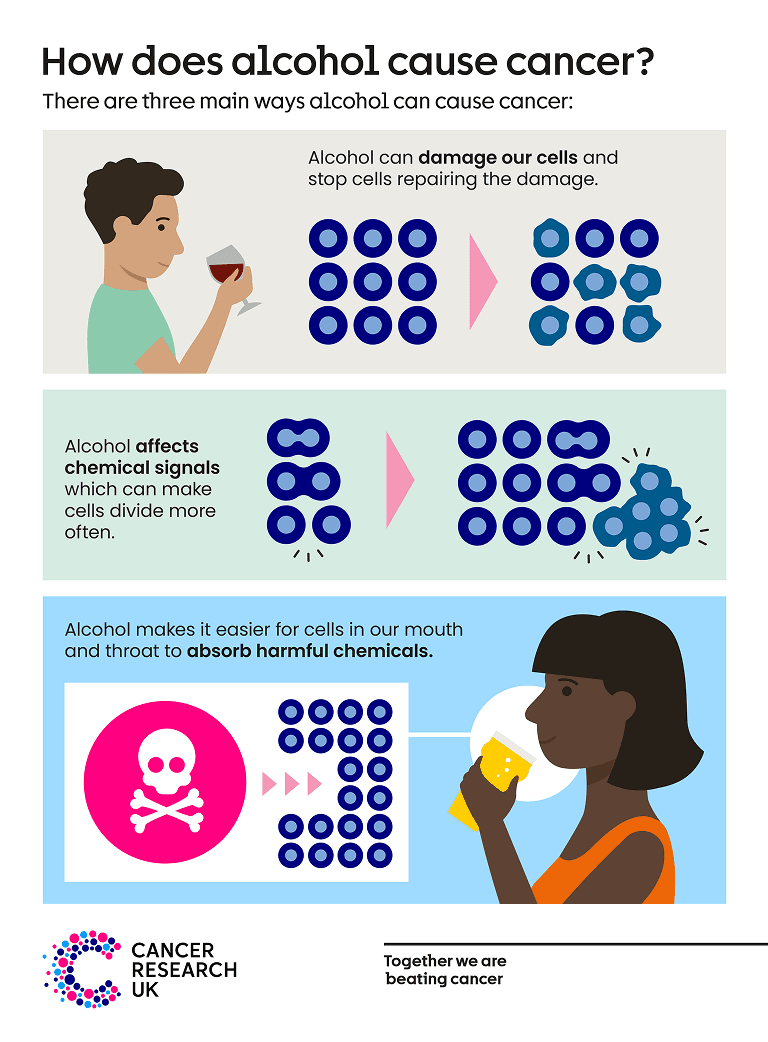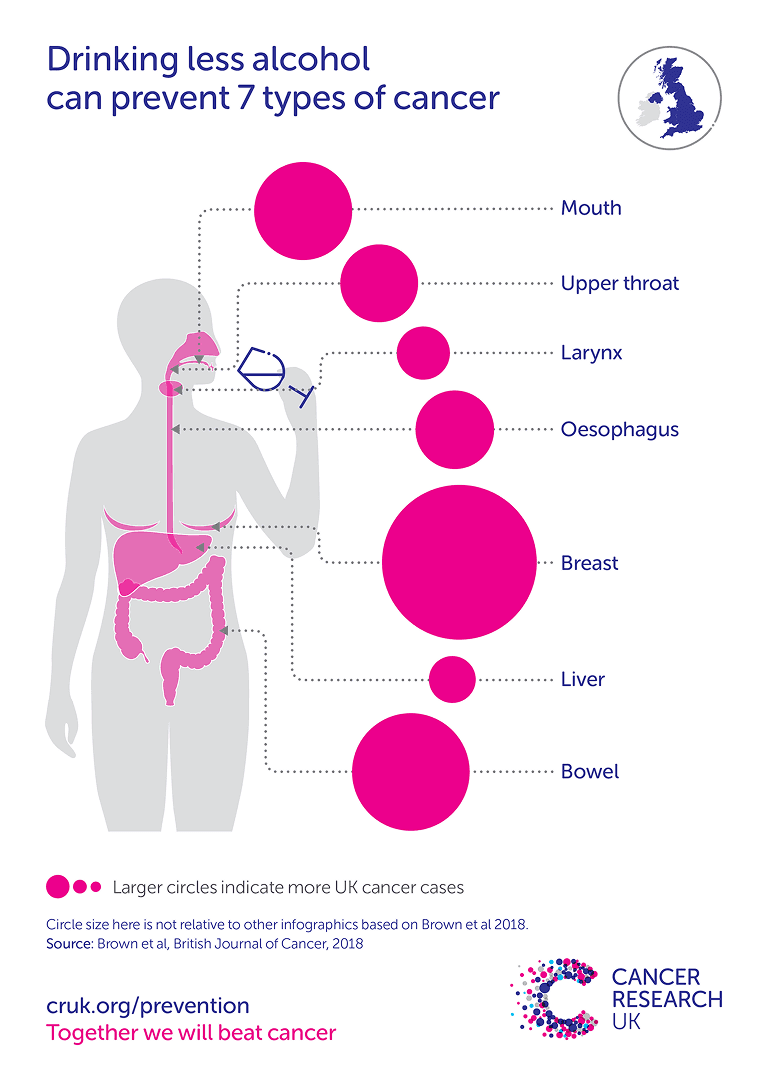Alcohol and cancer
Drinking alcohol increases the risk of cancer. Drinking alcohol doesn’t mean that you’ll definitely get cancer, but the risk is higher the more alcohol you drink.
People might talk about some alcoholic drinks being better or worse for you than others. But all types of alcohol increase the risk of cancer - as it’s the alcohol itself that causes damage, even in small amounts.
So the more you can cut down on alcohol the more you can reduce your risk of cancer.
Drinking less alcohol has lots of other health benefits, too. You can reduce your risk of accidents, high blood pressure and liver disease by cutting back.
Our tips for drinking less
When we drink alcohol, our bodies turn it into a chemical, called acetaldehyde. Acetaldehyde can damage our cells and can also stop cells from repairing this damage.
Alcohol can increase the levels of some hormones in our bodies such as oestrogen and insulin. Hormones are chemical messengers, and higher levels of oestrogen and insulin can make cells divide more often. This increases the chance that cancer will develop.
Alcohol can make it easier for cells in the mouth and throat to absorb harmful chemicals that cause damage.
Remember, it’s the alcohol itself that damages your body, even small amounts. It doesn’t matter whether you drink beer, wine or spirits. All types of alcohol can cause cancer.
There’s plenty of tricks that people claim ‘cure’ hangovers. But even if they work for your hangover, they don’t reverse the damage caused from drinking alcohol.
Drinking alcohol causes 7 different types of cancer. This includes:
Breast cancer and bowel cancer (two of the most common types)
Mouth cancer
Some types of throat cancer: oesophagus (food pipe), larynx (voice box) and pharynx (upper throat)
Liver cancer

Breast cancer is the most common cancer in the UK and drinking alcohol is one of the biggest risk factors for breast cancer. Around 1 in 10 breast cancer cases are caused by drinking alcohol, that’s about 4,400 cases a year. The risk of breast cancer is increased even if you drink at low levels.
Binge drinking increases the likelihood of health risks such as alcohol poisoning and accidents resulting in injury. No drinking pattern is better or worse than another for cancer risk. It’s how much alcohol you drink that matters, and the more you drink the higher your risk of cancer.
If you would like advice or support about binge drinking, you can talk to your doctor or visit the NHS webpage on alcohol support.
Yes, drinking alcohol is worse for you if you also smoke. For example, people who smoke and also drink alcohol are at a higher risk of mouth and upper throat cancers.
Tobacco and alcohol both increase the risk of cancer, but when used together they increase the risk of cancer even more. This is because tobacco and alcohol have a combined effect that causes greater damage to our cells.
Here’s how:
Alcohol may cause changes to cells in the mouth and throat that make it easier to absorb the cancer-causing chemicals in tobacco smoke.
Alcohol may change how the toxic chemicals in tobacco smoke are broken down in the body, making them even more harmful.
Find out more about smoking and cancer and how to stop smoking.
You may have heard that drinking alcohol can be good for the heart or help lower blood pressure. But NHS guidance on alcohol states that the evidence for any health benefits from alcohol is not clear. Research has shown there is no completely safe level of drinking, and the risk of cancer increases from drinking even small amounts of alcohol.
For more information about the effects of alcohol on the heart, visit the British Heart Foundation’s website.
Last reviewed: 01 Sept 2023
Next review due: 01 Sept 2026
Questions about cancer? Call freephone 0808 800 40 40 from 9 to 5 - Monday to Friday. Alternatively, you can email us.